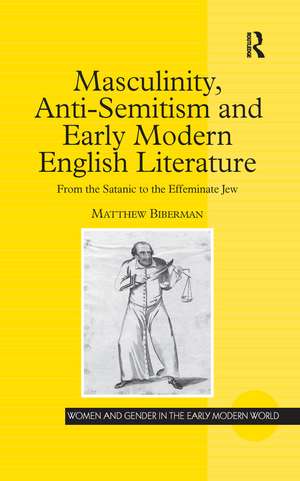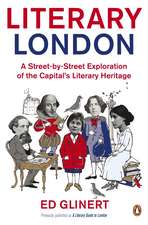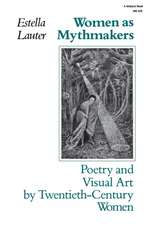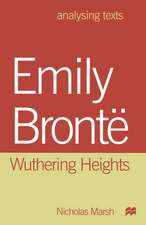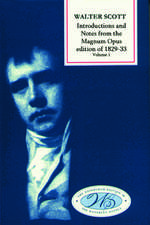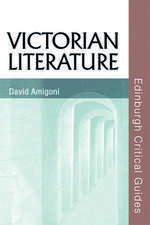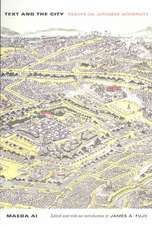Masculinity, Anti-Semitism and Early Modern English Literature: From the Satanic to the Effeminate Jew: Women and Gender in the Early Modern World
Autor Matthew Bibermanen Limba Engleză Paperback – 19 oct 2016
| Toate formatele și edițiile | Preț | Express |
|---|---|---|
| Paperback (1) | 338.33 lei 43-57 zile | |
| Taylor & Francis – 19 oct 2016 | 338.33 lei 43-57 zile | |
| Hardback (1) | 736.38 lei 43-57 zile | |
| Taylor & Francis – 10 dec 2004 | 736.38 lei 43-57 zile |
Din seria Women and Gender in the Early Modern World
-
 Preț: 225.10 lei
Preț: 225.10 lei - 19%
 Preț: 364.64 lei
Preț: 364.64 lei - 9%
 Preț: 1003.31 lei
Preț: 1003.31 lei -
 Preț: 289.10 lei
Preț: 289.10 lei - 8%
 Preț: 397.61 lei
Preț: 397.61 lei - 18%
 Preț: 1054.71 lei
Preț: 1054.71 lei - 18%
 Preț: 1004.68 lei
Preț: 1004.68 lei - 18%
 Preț: 1054.71 lei
Preț: 1054.71 lei - 18%
 Preț: 1055.06 lei
Preț: 1055.06 lei - 26%
 Preț: 764.20 lei
Preț: 764.20 lei - 26%
 Preț: 764.20 lei
Preț: 764.20 lei - 18%
 Preț: 1001.84 lei
Preț: 1001.84 lei - 18%
 Preț: 1000.27 lei
Preț: 1000.27 lei - 25%
 Preț: 497.08 lei
Preț: 497.08 lei - 18%
 Preț: 1000.27 lei
Preț: 1000.27 lei -
 Preț: 369.73 lei
Preț: 369.73 lei - 18%
 Preț: 1056.63 lei
Preț: 1056.63 lei - 28%
 Preț: 826.01 lei
Preț: 826.01 lei - 18%
 Preț: 1053.92 lei
Preț: 1053.92 lei - 25%
 Preț: 768.30 lei
Preț: 768.30 lei - 28%
 Preț: 819.48 lei
Preț: 819.48 lei - 18%
 Preț: 1113.63 lei
Preț: 1113.63 lei - 25%
 Preț: 767.07 lei
Preț: 767.07 lei - 31%
 Preț: 766.99 lei
Preț: 766.99 lei - 18%
 Preț: 1058.69 lei
Preț: 1058.69 lei -
 Preț: 369.73 lei
Preț: 369.73 lei - 16%
 Preț: 234.90 lei
Preț: 234.90 lei - 18%
 Preț: 1061.81 lei
Preț: 1061.81 lei - 31%
 Preț: 766.85 lei
Preț: 766.85 lei - 18%
 Preț: 1060.25 lei
Preț: 1060.25 lei - 28%
 Preț: 735.34 lei
Preț: 735.34 lei - 18%
 Preț: 1000.27 lei
Preț: 1000.27 lei - 18%
 Preț: 1061.81 lei
Preț: 1061.81 lei - 18%
 Preț: 1061.06 lei
Preț: 1061.06 lei - 28%
 Preț: 876.07 lei
Preț: 876.07 lei - 18%
 Preț: 1064.70 lei
Preț: 1064.70 lei - 18%
 Preț: 1107.61 lei
Preț: 1107.61 lei - 26%
 Preț: 736.38 lei
Preț: 736.38 lei - 18%
 Preț: 1068.15 lei
Preț: 1068.15 lei - 18%
 Preț: 1061.06 lei
Preț: 1061.06 lei - 18%
 Preț: 1000.76 lei
Preț: 1000.76 lei - 26%
 Preț: 819.84 lei
Preț: 819.84 lei - 18%
 Preț: 1109.18 lei
Preț: 1109.18 lei - 28%
 Preț: 821.53 lei
Preț: 821.53 lei - 18%
 Preț: 1000.27 lei
Preț: 1000.27 lei - 28%
 Preț: 827.75 lei
Preț: 827.75 lei - 18%
 Preț: 1122.62 lei
Preț: 1122.62 lei
Preț: 338.33 lei
Preț vechi: 386.77 lei
-13% Nou
Puncte Express: 507
Preț estimativ în valută:
64.74€ • 67.77$ • 53.57£
64.74€ • 67.77$ • 53.57£
Carte tipărită la comandă
Livrare economică 07-21 aprilie
Preluare comenzi: 021 569.72.76
Specificații
ISBN-13: 9781138257979
ISBN-10: 1138257974
Pagini: 274
Dimensiuni: 152 x 229 mm
Greutate: 0.45 kg
Ediția:1
Editura: Taylor & Francis
Colecția Routledge
Seria Women and Gender in the Early Modern World
Locul publicării:Oxford, United Kingdom
ISBN-10: 1138257974
Pagini: 274
Dimensiuni: 152 x 229 mm
Greutate: 0.45 kg
Ediția:1
Editura: Taylor & Francis
Colecția Routledge
Seria Women and Gender in the Early Modern World
Locul publicării:Oxford, United Kingdom
Cuprins
Contents: Introduction; 'His stones, his daughter and his ducats': the Jew-devil, the Jew-sissy and the theo-sexual matrix; 'Madam Rabbi': representations of Jewish women in English renaissance drama; 'By thee adulterous lust was driv'n from men': Donne, Milton and the rise of the Jew-sissy; 'She proving false, the next I took to wife': divorce law and violence in Jonson, Cary and Milton; 'He is imitating nobody, and he is inimitable': T.S. Eliot and the antisemitic aesthetics of the Milton controversy; 'When King Laugh come he make them all dance': the gothic reconstitutions of the Jew-devil; Conclusion; Appendix; Notes; Works cited; Index.
Notă biografică
Currently an Associate Professor of English at the University of Louisville, USA. Matthew Biberman holds a 1998 doctorate in English Literature from Duke University in Durham, USA and has published scholarly essays on Milton, Wordsworth and others.
Recenzii
'This is a tour-de-force of historical scholarship and cultural meditation. Beginning with the simple observation that the career of anti-Semitism unfolds as a dialectic between two opposed but symbiotic figures”the Jew-Devil and the Jew-Sissy”Biberman provides startling readings of some of the major texts in the Western Canon and deepens our understanding of the protean and indestructible thing that anti-Semitism is. Biberman's knowledge of sources and of critical commentary is astounding, but even more astounding is his ability to at once synthesize and appropriate the work of his predecessors and to go beyond it in surprising but persuasive ways. One measure of his success is the fact that two-thirds of the way through the book the reader can accept as obvious and inevitable the conclusion that the latest representative figure of the demonic/effeminate Jew is Osama bin Laden, the Islamic terrorist, who in Biberman's reading is himself the heir of Mary Shelley's Frankenstein monster and Bram Stroker's Dracula. Now there's an unlikely thesis, but one that Biberman renders entirely convincing. A major achievement.' Stanley Fish, Dean, College of Liberal Arts and Sciences, University of Illinois at Chicago 'Timely, cogent and forcefully argued... With this book, Matthew Biberman joins a group of critics who illuminate the peculiar vicissitudes of religious discourse in the creation and criticism of Western literature.' Julia Reinhard Lupton, Associate Professor of English and Comparative Literature, University of California-Irvine 'Adroit at reading this anti-Semitic tropology in and into a great variety of writings, Biberman's study is most provocative in its attention to what it calls the 'anti-Semitic aesthetics' of the modern literary-critical establisment... Biberman's study stays [...] consistently energized by the horrifying logic propelling the narrative of anti-Semitism through modern times.' Renaissance Quarterly '... there is much to praise in th
Descriere
This study argues that modern antisemitism is a by-product of tensions between received Classical conceptions of masculinity and Christianity's strident critique of that ideal. Utilizing works by Shakespeare, Milton, Marlowe and others, Biberman illustrates how antisemitism develops as a way to stigmatize hypermasculine behavior, thus facilitating the transformation of the culture's gender ideal from knight to businessman. Subsequently, the function of antisemitism changes, becoming instead the mark of effeminate behavior. Consequently, the central antisemitic image changes from Jew-Devil to Jew-Sissy. Biberman traces this shift's repercussions, both in Renaissance culture and what follows it. He also contends that as a result of this linkage between Jewishness and the limits of masculine behavior, the image of the Jewish woman remains especially unstable. In concluding, Biberman argues that the Gothic resurrects the Jew-Devil (bequeathing it to the Nazis), and that the horror genre is often a rewriting of Renaissance discourse about Jews.
